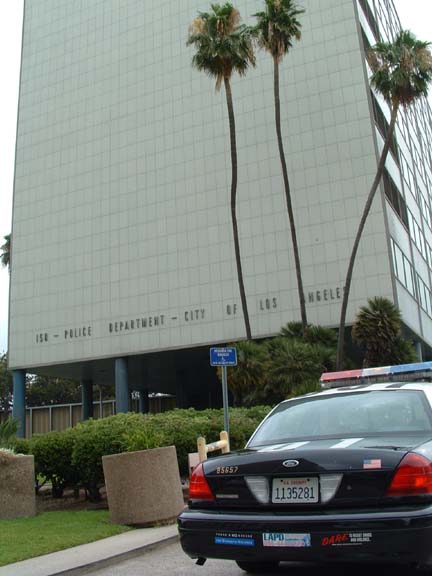
Reports of undercover infiltration of occupy movements nationwide have begun to trickle out, peppered among the hundreds of front page stories in many cities describing police riots against peaceful demonstrators. There is now also evidence of at least one case in which a police officer admitted to having set up a fake Twitter account solely to harass occupiers via the social media network.
The New York Times reported in November about NYPD officers covertly entering a church in order to spy on the Occupy Wall Street protesters who were sleeping inside. A man who describes himself as a private security contractor who has worked for the US army was found to have infiltrated various Occupy Wall Street information systems, including a tactical listserv. He leaked thousands of internal organizing emails to Andrew Breitbart, who published them on his website. He also allegedly forwarded particular emails to the NYPD and the FBI, who seemed to appreciate the information.
In Los Angeles, the police are admitting to having infiltrated the occupy movement as a tactical move prior to their raid on the camp last week. Even more shockingly, the police admitted to having arrested specific people preemptively. That is, the police quietly hung around the encampment before the raid, observing the planning process and individual activists, and then arrested those people they deemed to be most likely to resist an order of dispersal before the raid took place. The Chief of the LA police credits these underhanded tactics for keeping down the cost of the raid.
Officers and law enforcement think-tanks nationwide are currently enamored with this kind of policing. The basic concept is that if the police know everything they can possibly know about individuals, groups and networks, they can stop crime before it occurs. They call it "predictive policing;" Bill Bratton, former Chief of the LAPD, likes it so much he wrote a paper on it.
Predictive policing has spread to nearly every major department nationwide. Have other departments nationwide been involved in similar undercover intelligence gathering and preemptive arrests at occupy camps? A former law enforcement officer who regularly posts to Twitter on matters related to policing practice wrote of the LAPD infiltration:

Good job?
The Los Angeles Police Department has been widely praised in corporate media and by the mayor there for having acted responsibly during the raid. This man, who filmed police knocking someone off of his bike and says he was then assaulted on camera by the same officer, likely disagrees with that assessment. The detained occupiers LAPD allegedly locked inside a police van for seven hours without access to restrooms, medical attention, food, water, lawyers or anything else likely disagree with that assessment, as well. Multiple people of the 40 or so locked on that bus reportedly urinated on themselves during that period; meanwhile, the officers in charge of the bus allegedly took a Starbucks break.
The LAPD's conduct during the raid itself has been confusing to understand for those of us on the outside. The Mayor gushed over the professional, peaceful LAPD raid, while journalists on Twitter and elsewhere online complained of having been denied access to the site. The LAPD apparently set up an "in the know" media training for journalists who wanted to cover the raid, and denied any who did not attend access to the site. The Daily Sundial reports:
To be considered for the media pool, reporters had to attend a secret meeting held Monday by LAPD, and have a police-sanctioned pass, which are only given to reporters specifically covering police, according to LA weekly.An email sent by Lieutenant Andy Neiman, head of LAPD media relations, told select media outlets about the meeting at 5:30 p.m. City News, a wire service that not all news outlets subscribe to, released the email at 6:00 p.m.The meeting began at 7:15 PM.
